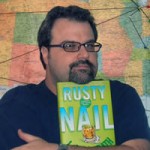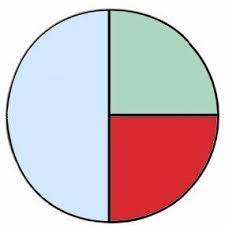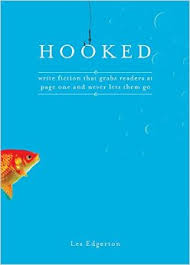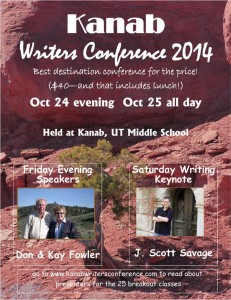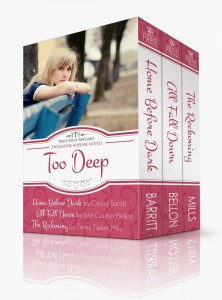As I wrote last week, Tracy Winegar and I share a couple of things in common: we both have sons with an autistic spectrum disorder, and we both wrote novels about it, though she set hers, KEEPING KELLER, in an earlier time period long before doctors really knew what to do about it.
 ME: What was it like growing up in Indiana, and who were your earliest and/or strongest literary influences? Also, how would you compare the Western and Midwestern mindsets, and where do you come down between the two?
ME: What was it like growing up in Indiana, and who were your earliest and/or strongest literary influences? Also, how would you compare the Western and Midwestern mindsets, and where do you come down between the two?
TRACY: Growing up in Indiana was not a bad way to spend my youth. I had a fairly carefree childhood. I was the third of eight children. My mom was a stay at home mom. She was very fun and had a great sense of humor. My dad provided for our family. I had nothing but sisters until I was about five years old, when my brother was born and then two more sisters before my last sibling, another brother, was born. I grew up in cornfields and with a small town mindset. There were very few LDS people in our area, so I knew from an early age that I was very different, at times excluded because of it. Hard work was important and I began working part time when I was fourteen.
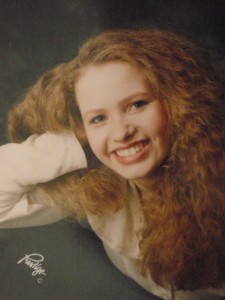 (Tracy as a teenager)
(Tracy as a teenager)
I spent summer vacations on my grandparents’ farm in Tennessee. When I think of my favorite places, that is one of them. It was quiet, and beautiful, and simple. Very few distractions gave me and my brothers and sisters the opportunity to use our imaginations and spend time in the great outdoors. My grandmother was a great storyteller and we loved to sit with her and hear her stories of when she was growing up and how she met Grandpa and fell in love.
I enjoyed a lot of different activities, but I loved drama and I loved writing. Each year they had a competition called the Young Authors Competition. I entered every year and always placed. (So, the talent showed itself early!) The prize for winning was that you were able to attend a lecture with a real life author. That was when I got to hear some of the great authors of my youth speak, one of which was Judy Blume.
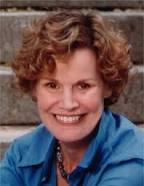 (Judy Blume)
(Judy Blume)
When I was young I loved to read Pippi Longstockings, Island of the Blue Dolphins, Little Women, Calico Captive, and The Witch of Blackbird Pond.
As I got a little older, one of my biggest influences was a teacher I had my sixth grade year. Mrs. Meier-Fisher. She had us read some really beautiful literature and she gave us some great writing assignments. I was on cloud nine when she read one of my pieces to the class as an example. (I’ll bet!) She had us read some of the great Hoosier writers and I fell in love with Gene Stratton Porter.
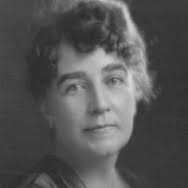 (Indiana poet and novelist Gene Stratton Porter)
(Indiana poet and novelist Gene Stratton Porter)
One of my Grandma Beaty’s favorite books was her novel, A Girl of the Limberlost, and when I read it I was in love with it too. I also really loved James Whitcomb Riley, another Indiana author who had become a great poet. In seventh grade I read Gone With the Wind and loved it as well. I discovered that anything historical was right up my alley, fiction or non-fiction alike.
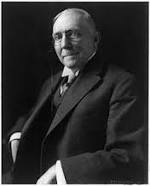 (James Whitcomb Riley)
(James Whitcomb Riley)
I am still very much a Midwesterner, although I have lived in Utah for the past twelve years. I like things simple and uncomplicated. I love being home with my family as much as possible, and I miss the green landscape and beautiful stretches of empty land. I would love an acreage, but land here is very expensive and every space is taken up with houses. Gone are the cornfields and soy bean fields that stretched for miles.
ME: When did you first know you wanted to be a writer, and what brought about that realization?
TRACY: When I was a kid, I loved paper. Before I could even write I spent a great deal of time “writing” cursive loops, although none of it was actually words. In third grade I wrote a tall tales story for a school wide competition and was hooked when I was one of the winners.
I did a lot of creative writing in high school, but then I got married and had children and didn’t have a lot of time for writing. When I turned thirty, I told my husband that it was a dream of mine to write a novel and so I began and I kept at it and somehow managed to finish the thing. That was my first novel KEEPING KELLER.
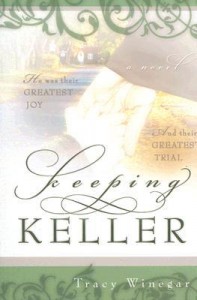
ME: Why did you move to Utah at 19? And if it involved college, how did your college studies impact the kinds of things you write today?
TRACY: I moved to Utah because I wanted an adventure. I moved to Utah because I wanted to see what it was like to be surrounded by people who were like me and not be the odd man out for once. (I know exactly what you mean. That’s why I went to Utah after high school in Beirut.) It was fun to be able to go to parties and to have social events where I knew I would be welcome. I enjoyed dating and being independent. I missed my family very much, but also was happy to be experiencing new experiences.
ME: What type of writer do you aspire to be, and which writers have influenced you the most?
TRACY: My goal is to try and make people feel something when they read my writing. To invoke a reaction, to get people to relate on some level to the story or the characters would make me a happy character.
I love classic literature and I enjoy historical fiction. It’s hard to say who has influenced me the most, because I have read so many quality books by so many awesome writers. My favorites are the books that leave me feeling haunted… I just can’t forget the characters or the storyline. As I stated before, I love A Girl of the Limberlost, but I also loved Gone With the Wind and A Tale of Two Cities. More recent books that I enjoyed were The Forgotten Garden and The Secret Keeper by Kate Morton.
 (Australian author Kate Morton)
(Australian author Kate Morton)
While many great authors have inspired my work, I also attribute my writing style to the themes I know best. Motherhood, marriage, and my relationships with friends and my family (thanks Mom and Dad) are themes that are always reoccurring in my writing, because that is what I know best.
(And it shows.)
ME: Strangely enough, I’d forgotten we were both Whitney Finalists in 2008 in the General Fiction category for our first novels, KEEPING KELLER (yours) and THE RECKONING (mine). (That’s why your title sounded so familiar to me.) As an awards program, what do the Whitneys mean to the LDS writing community in general and to you, personally?

TRACY: I think it’s great that there is a forum for LDS writers. I thought it was a wonderful honor and was very excited to be involved when I was a finalist. It is difficult to be seen or stand out in a field where anyone can publish and the market is saturated with books, both good and bad. This gave me the opportunity to be seen, which is any author’s dream.
(Amen!)
ME: We’ve both written novels based on our personal experiences with an autistic son. Please tell us a bit about KEEPING KELLER and how much of your son comes through in the book. Also, I’d love to hear the story of your son’s diagnosis and your reaction to it (and post a picture of you with him, if possible).
TRACY: The character in KEEPING KELLER is nothing but my son. Many of the experiences I wrote about in the book were based upon things that had happened to me. It was very personal. I love the story, but do feel it could have been better with more editing. However, that was a very honest look into the life of a mother dealing with autism, as well as the difficulties she would have encountered during that time period (the 1950s).
I had it much easier than Beverly, because I was able to get help and learn how to work with my son. When he was young, our family life was very complicated and difficult. Thankfully he has gotten a little better and a little better, until we are now in our own comfortable normal. He throws us some curve balls every now and again, but I don’t feel as though I might have a nervous breakdown a majority of the time any more.
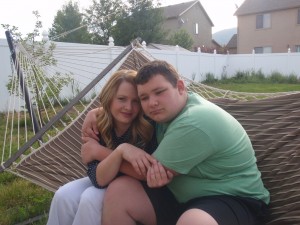 (Tracy with her son, Luke)
(Tracy with her son, Luke)
My son was my second child. I first had a girl who was very smart and very vocal. He began to develop normally until about eighteen months old. We noticed that the few words he had acquired seemed to be lost. He had odd behaviors that we couldn’t quite figure out. A lot of people told me that it was because he was a boy and that boys were very different than girls. I knew instinctively that something was not right. I persisted in trying to get him help until he was diagnosed with Autism when he was two years old. At the time, I was a month away from having my third child, another son.
(I imagine that made you extra nervous.)
One of the reasons we moved back to Utah from Iowa was in order to get my son into the Northern Utah Autism Program. There were many difficult and sad years. It is hard to come to terms with the fact that your child will never be normal. We love him, but Autism is such a devastating thing to live with. We have had many bad experiences, we have been judged and treated badly, but we have also had a lot of compassion and some true friends to come of it.
(That’s a blessing, indeed. It sounds like your son’s on the more severe end of the spectrum. You and your husband must be twice as strong and even more patient.)
Sometimes I see boys his age and think “He would be doing this” or “He could have done that” and I feel sad. But then there are times when I see boys his age and things they are doing and I am very grateful that he is innocent. I will never have a missionary, a football star, see him graduate, or go to college, or get married. But I will always have Santa Claus and the Easter Bunny and that will always fill my life with the magic of childhood.
(How true!)
ME: Your second novel, GOOD GROUND, came out last year. What led you to write this story and what are its main themes?
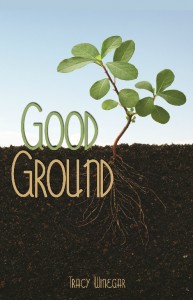 TRACY: I wrote GOOD GROUND based on my love of my grandparents’ farm. I loved the setting and the time period, which was when my grandparents courted and fell in love. I had a deep commitment to telling the story of a man who was what he was because of his rearing.
TRACY: I wrote GOOD GROUND based on my love of my grandparents’ farm. I loved the setting and the time period, which was when my grandparents courted and fell in love. I had a deep commitment to telling the story of a man who was what he was because of his rearing.
I like to think that we have the power and ability to change the destiny of children who seem to have no future. I work with children on a daily basis, mine and many others. I see such great potential, but I also, at times, have seen children whose potential has been robbed of them by the adults in their lives and the examples they have set. There are more than a few that I have daydreamed about rescuing, taking into my home and raising as my own.
I also liked the idea that nothing is coincidence, things happen for a reason. The whole analogy of farming tied in so perfectly with the themes of work, family, and investing in something that will produce results. I think the thing I am most proud of is the change that you see in the characters from the beginning to the end, especially Clairey. Interestingly enough, she is someone that many women have related to, which makes me very happy. I love the fact that the love story is very real, based on mutual respect, an established relationship, hard work, and sacrifice.
(Sounds good. I’m going to have to check it out!)
ME: Are you an organic type of writer when it comes to the process, or do you prefer outlining, and why or why not?
TRACY: Very, very organic! I always have an end in mind, but I rarely outline. I am far too unorganized and my life is way too unpredictable for me to keep up with planning it all out. I’m not sure if that is beneficial or harmful. I could probably get a lot more done if I were able to outline, but then too, I am open to different impressions and ideas as they come to me and have the ability to be somewhat creative because of my oddball style.
(Yet one more thing we have in common…)
ME: When do you do your best writing and what are you working on now?
TRACY: I am definitely best writing in the evening, but I try and write whenever I have a free moment.
Right now I am trying desperately to finish a trilogy set during the Civil War. I have successfully finished the first two novels and am about 2/3 the way through the last. But the last one is KILLING me! Hopefully I will be able to complete it this summer. (Fingers crossed.)
ME: Finally, I’m of the belief that a writer’s space is crucial. When you consider the area that you use to write, what five things stand out about it that makes it uniquely yours. (And I must have a picture.)
TRACY: I wish I could say I have a space of my own. I do not. I write where there is quiet. Sometimes that is my dining room table, sometimes my bedroom, sometimes outside on my porch, or sometimes my lunch break at work.
I dream of an office with large open windows in a restored older home. Someday I may actually have that space. Right now I make do with what is available to me.
(Everyone…order Tracy’s books and spread the word so she can afford her own writing space!)
 (Her temporary space at the dining room table)
(Her temporary space at the dining room table)
Tracy has a website and a blog, where you can learn much more about her and her writing (and she’s posted lots of pictures on her blog). Her books are available on Amazon.
I only have two more weeks to go in my Wednesday Writer series because after July 2nd I’m putting it on hiatus in order to complete some exciting projects during the rest of the year. So be sure and check back next week to read my interview with Theresa Sneed, who’s recently released Book 1 of a new YA fantasy series.
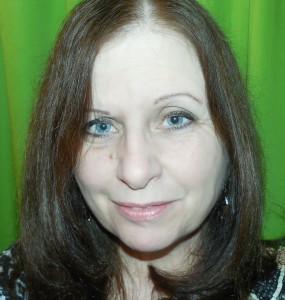
Originally posted 2014-06-11 01:00:59.



